IFRS Adoption in Australia: A Case Study of Wesfarmers and Its Impact
VerifiedAdded on 2021/06/14
|16
|914
|53
Report
AI Summary
This report examines the impact of the introduction of International Financial Reporting Standards (IFRS) on Australian companies, with a specific focus on Wesfarmers Limited (ASX: WES). The report begins with an overview of the context of IFRS adoption in Australia, including the mandate by the Australian Accounting Standards Board (AASB). It then outlines the advantages and disadvantages of IFRS implementation, such as reduced capital costs and increased comparability, alongside challenges such as the need for professional training and the potential loss of industry-specific accounting standards. A comparative analysis of IFRS and Australian Generally Accepted Accounting Principles (AGAAP) highlights key differences, particularly in financial instruments, and lease accounting. The core of the report analyzes the impact of IFRS on Wesfarmers, detailing the changes in lease recognition, CGU impairment assessments, and asset impairment testing. The conclusion summarizes the positive and negative influences of IFRS adoption, emphasizing the complexities faced by companies with large and diverse portfolios, such as Wesfarmers, and the potential for stakeholder confusion due to the extensive disclosure requirements. The report is a detailed case study of the challenges and opportunities presented by the transition to IFRS for a major Australian corporation.
1 out of 16
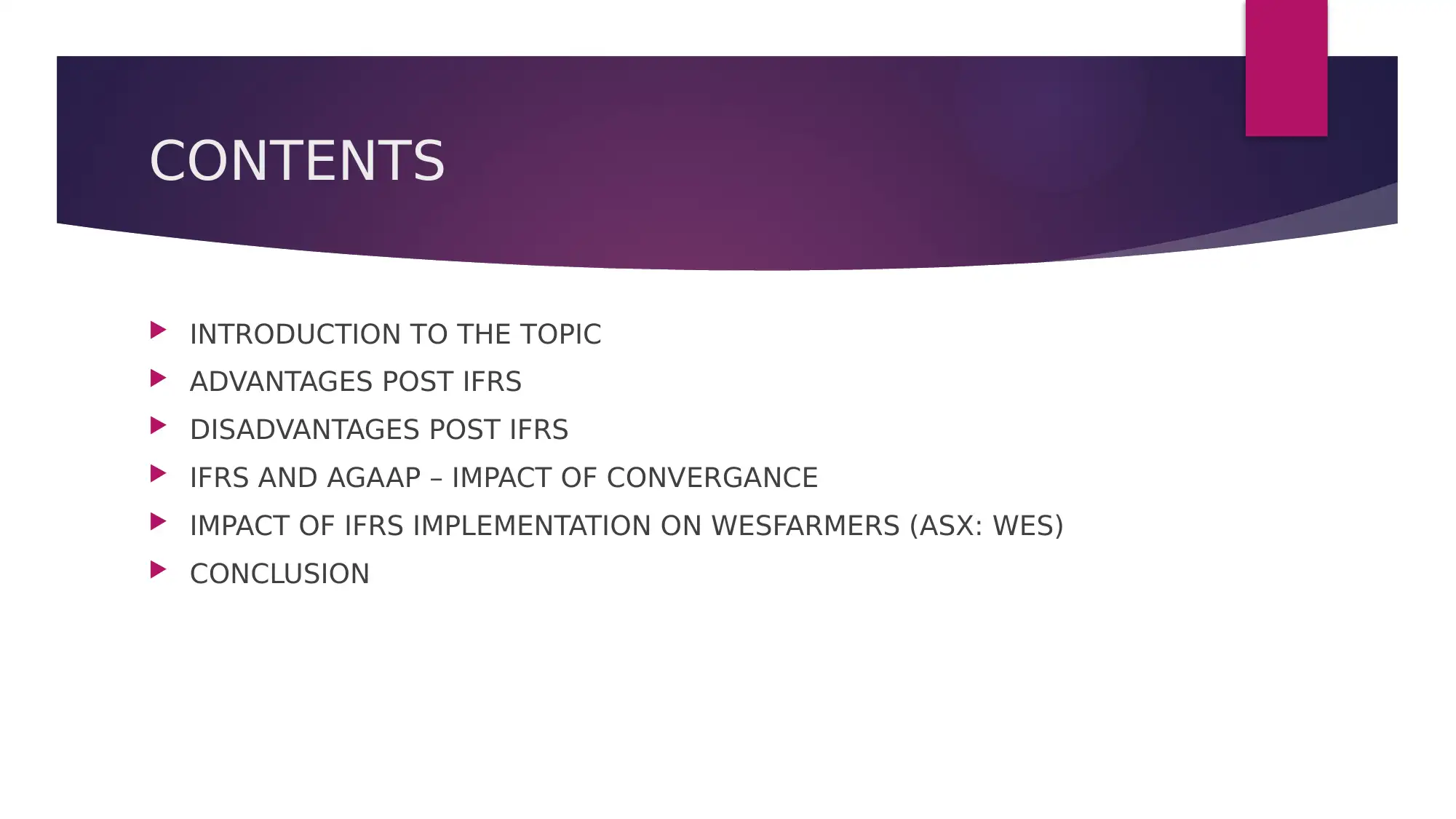
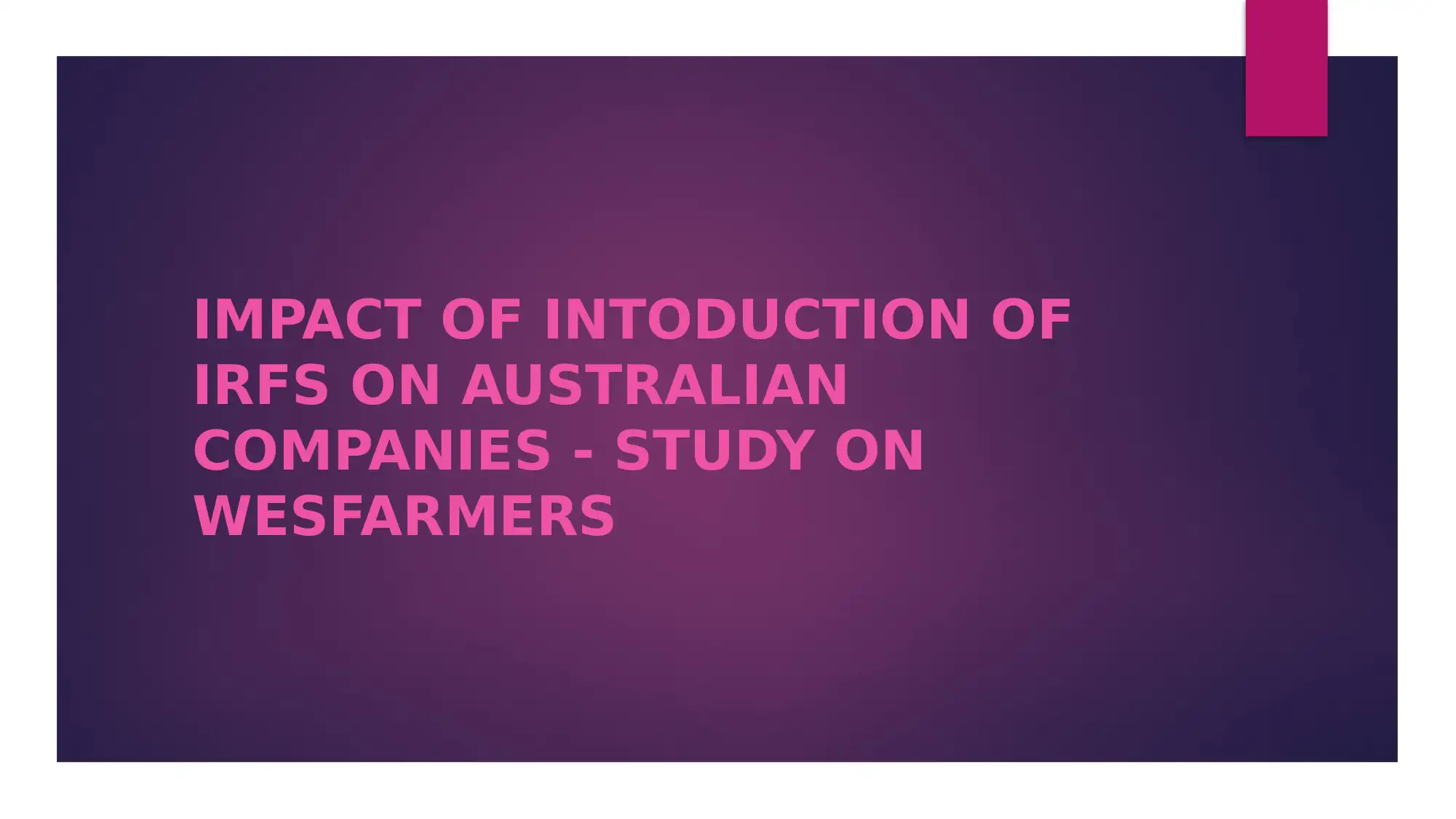
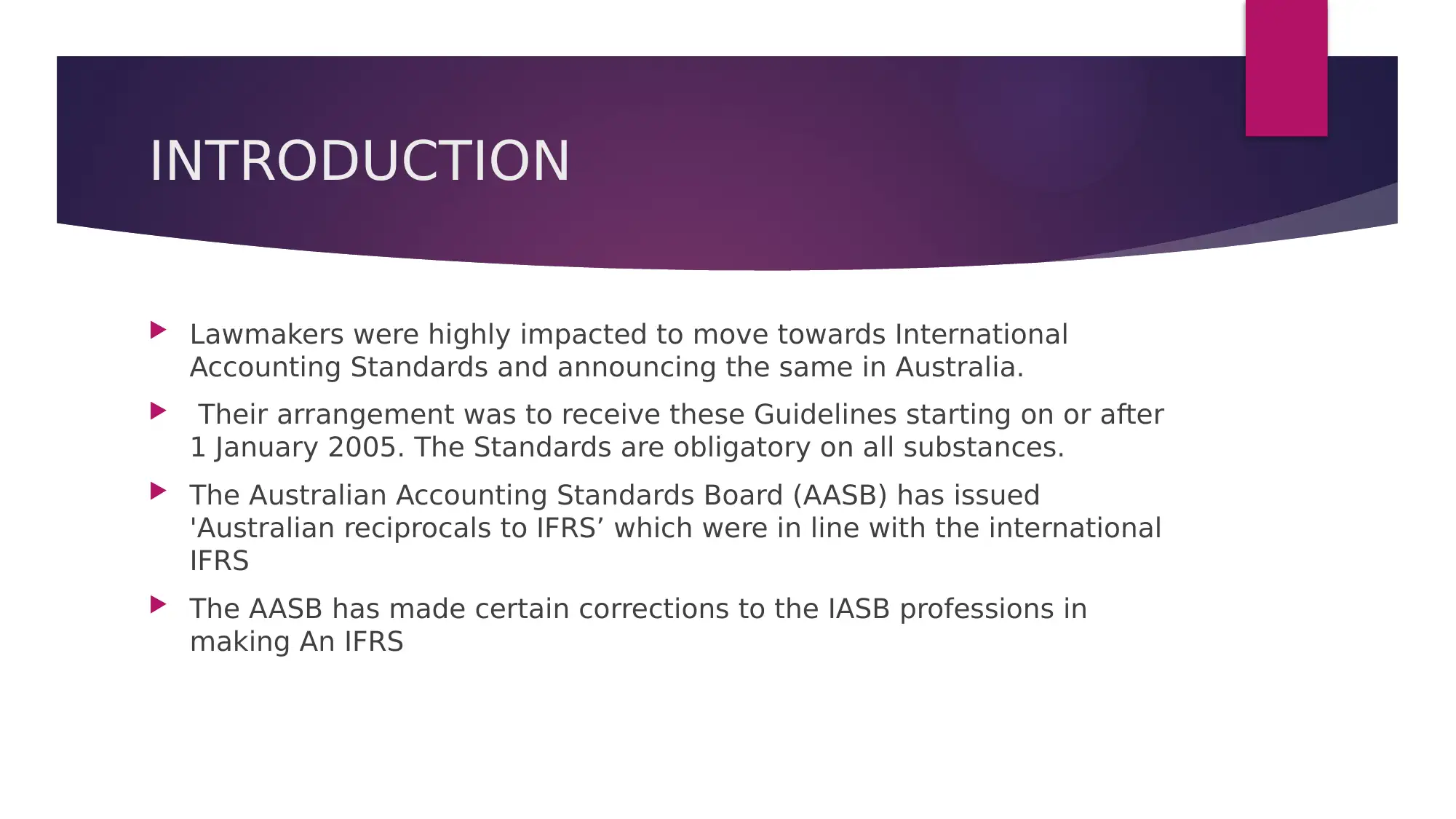

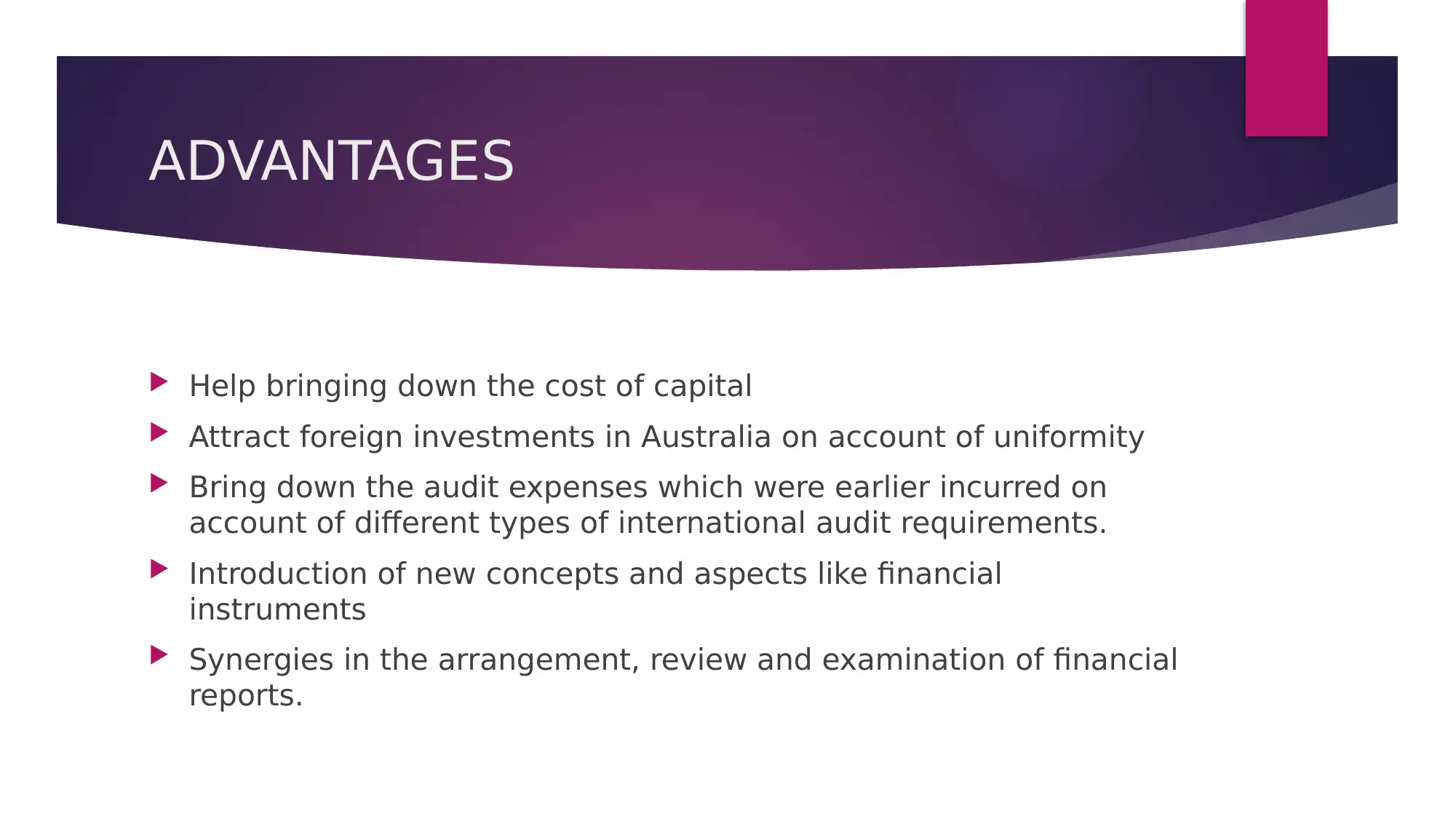
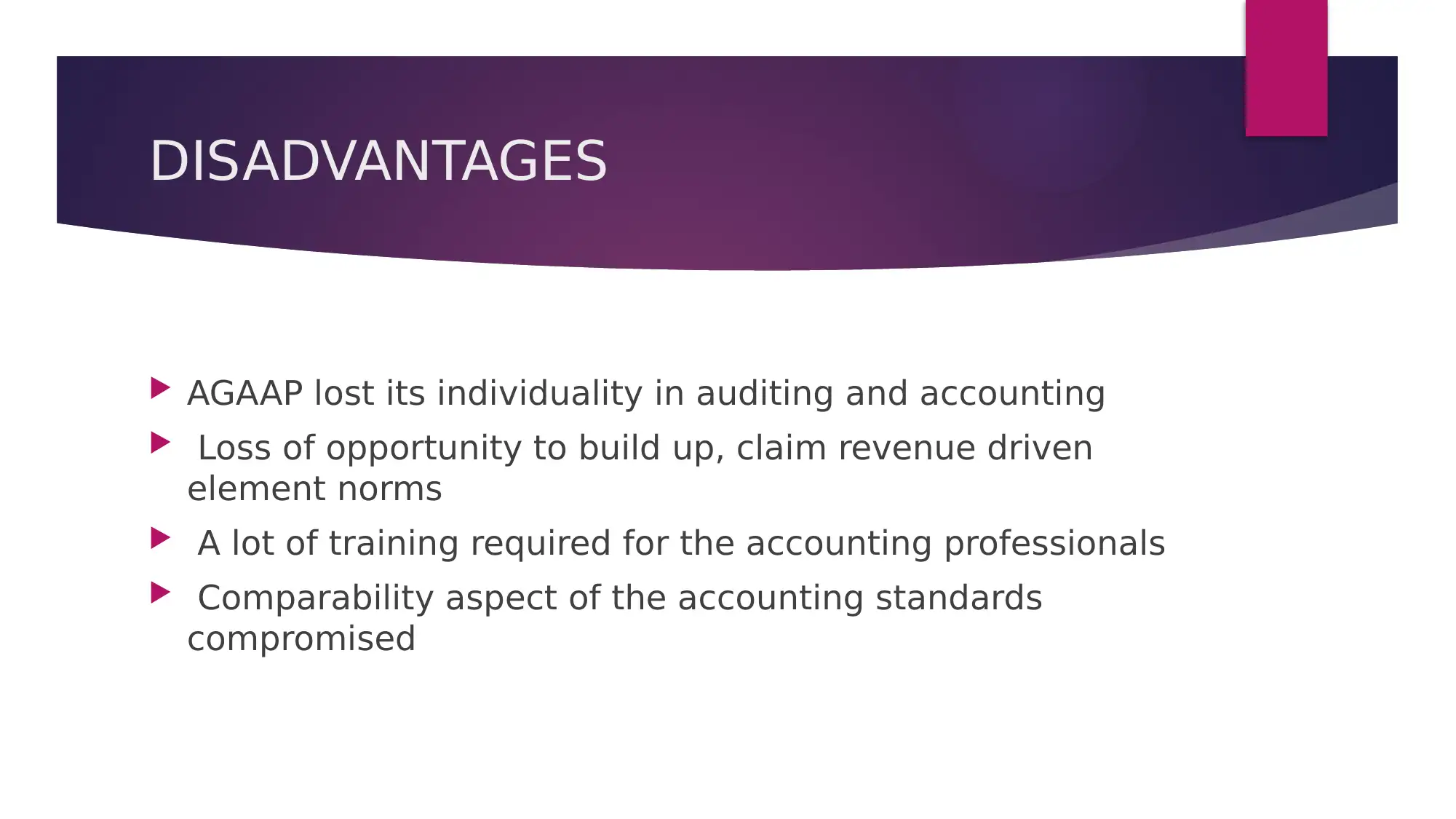
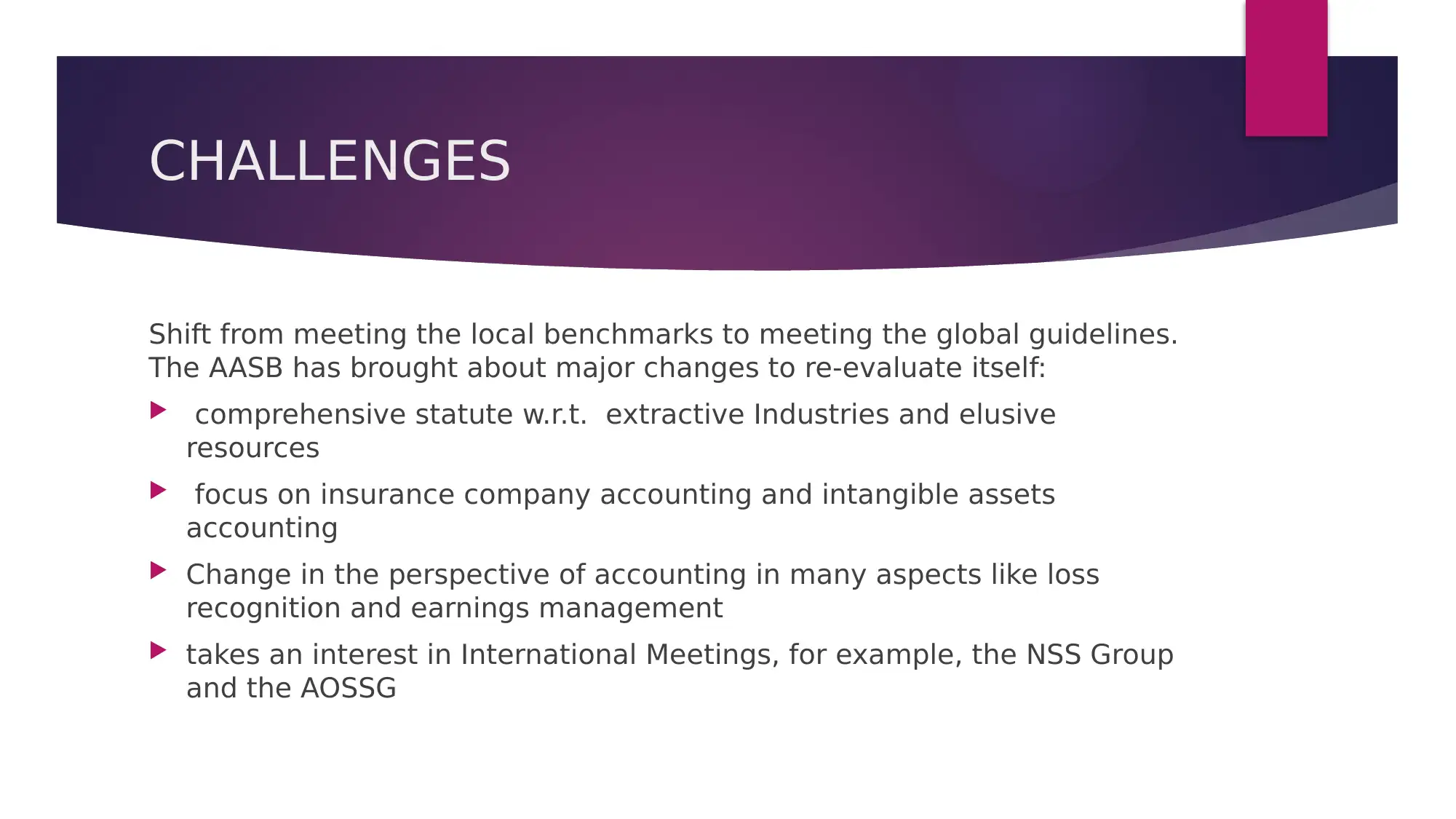
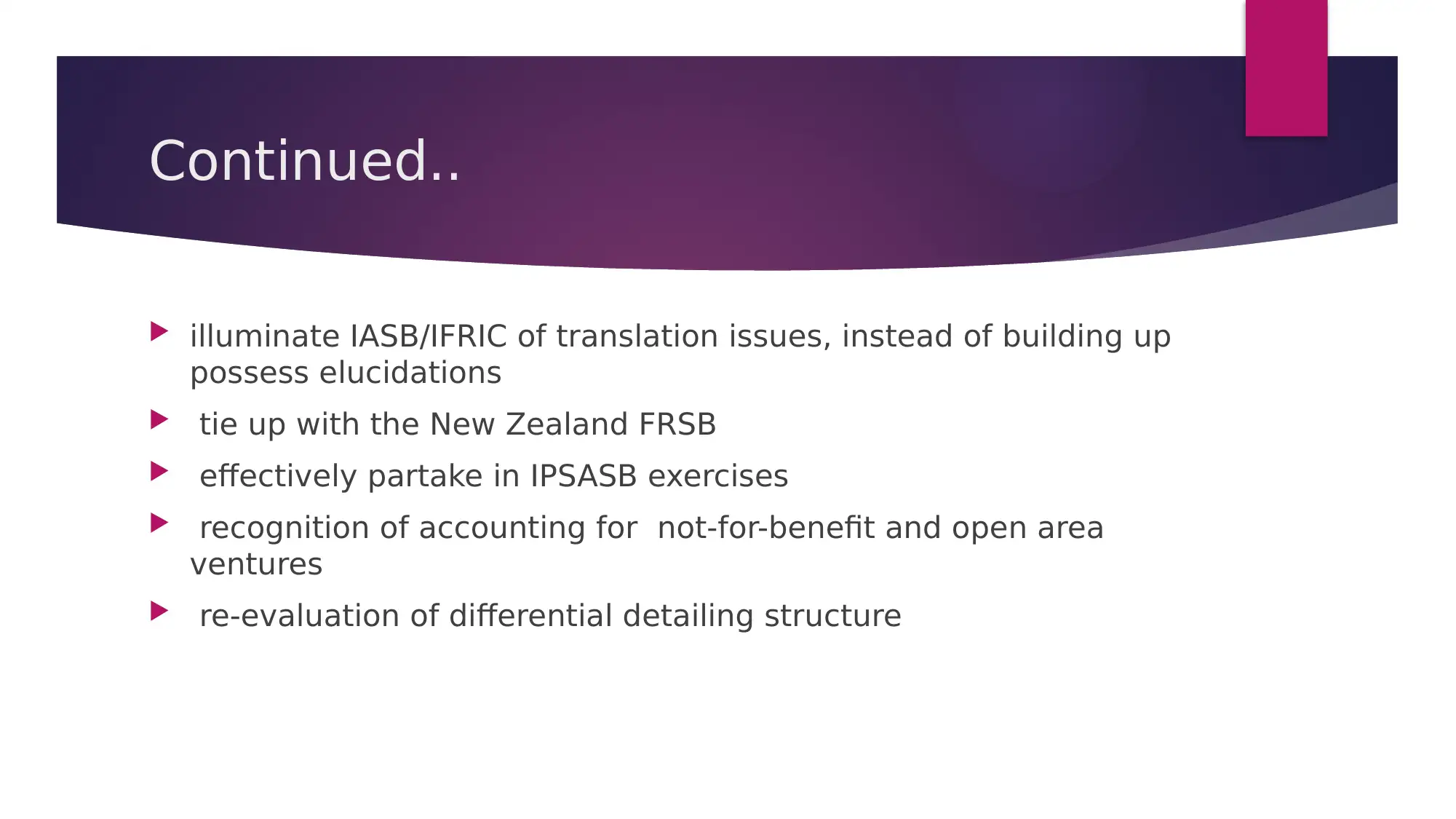
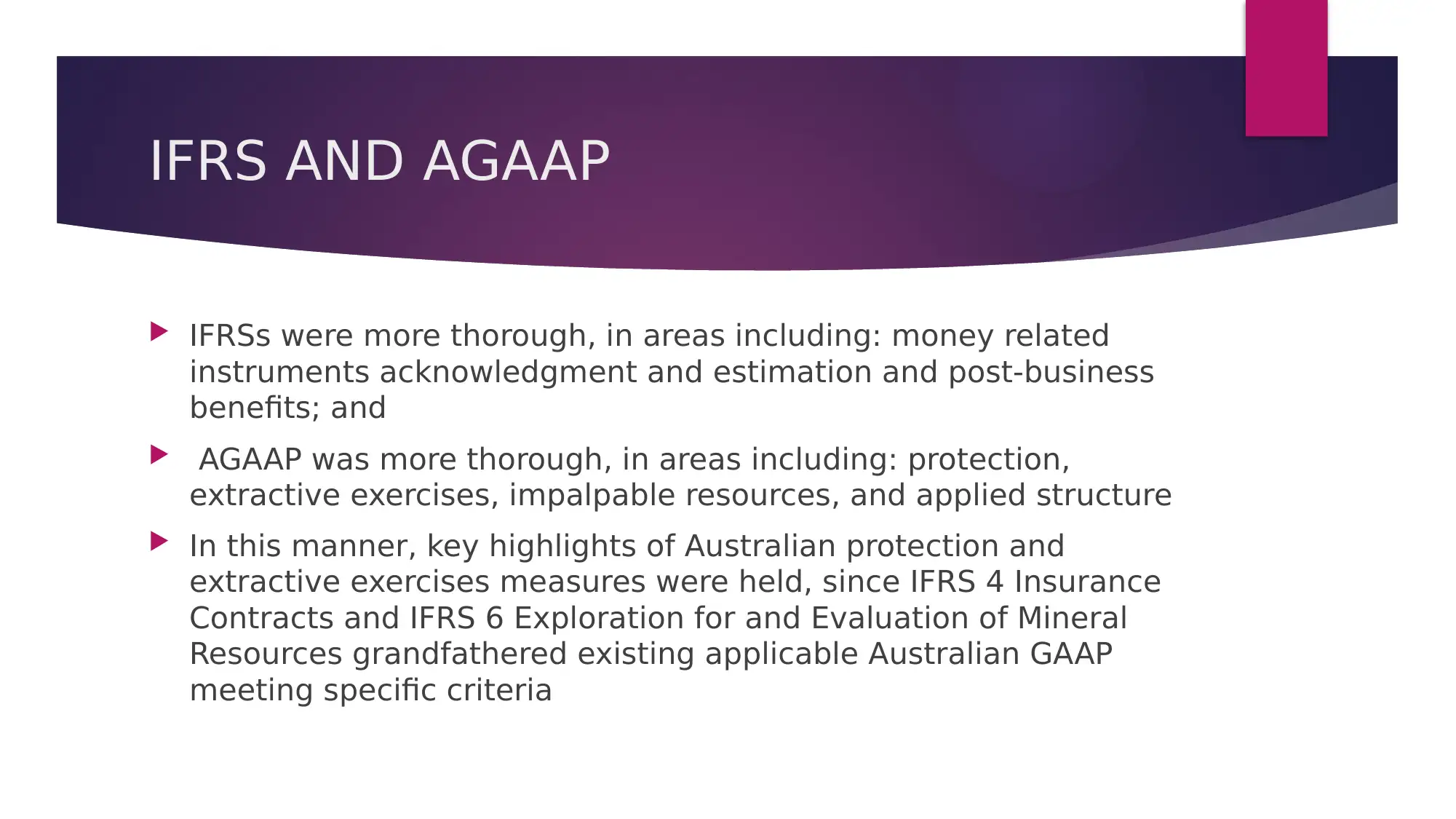
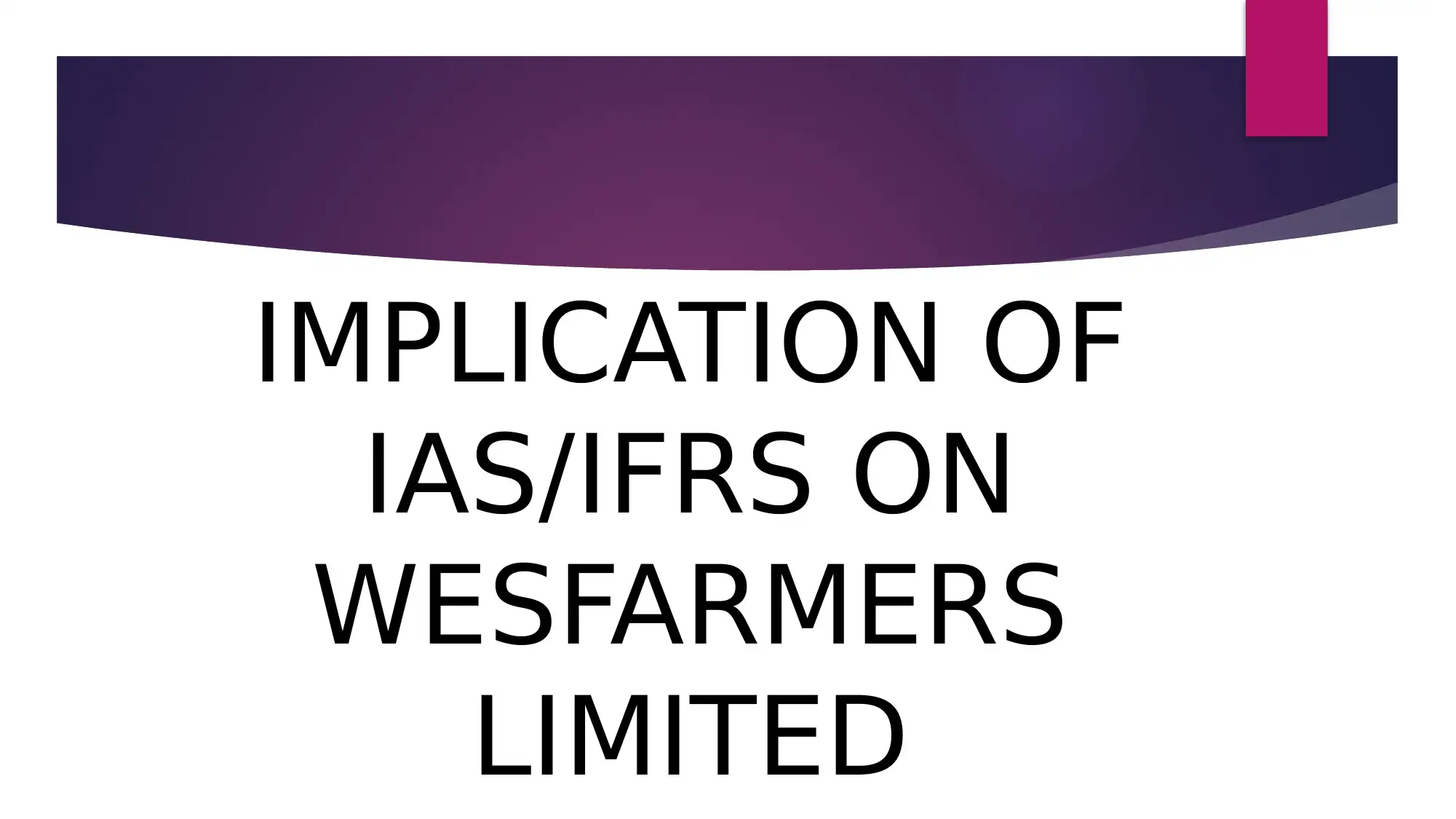
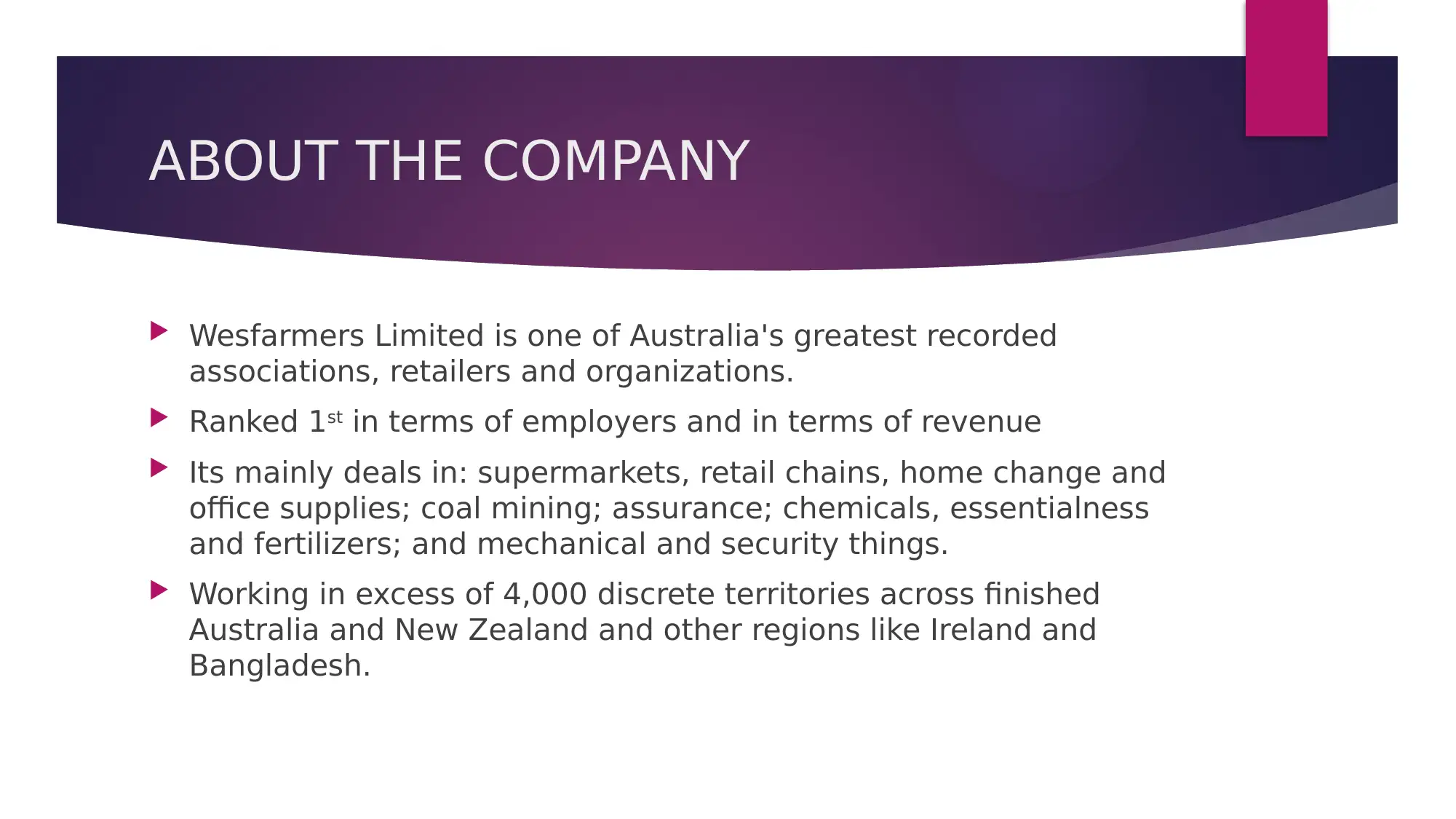
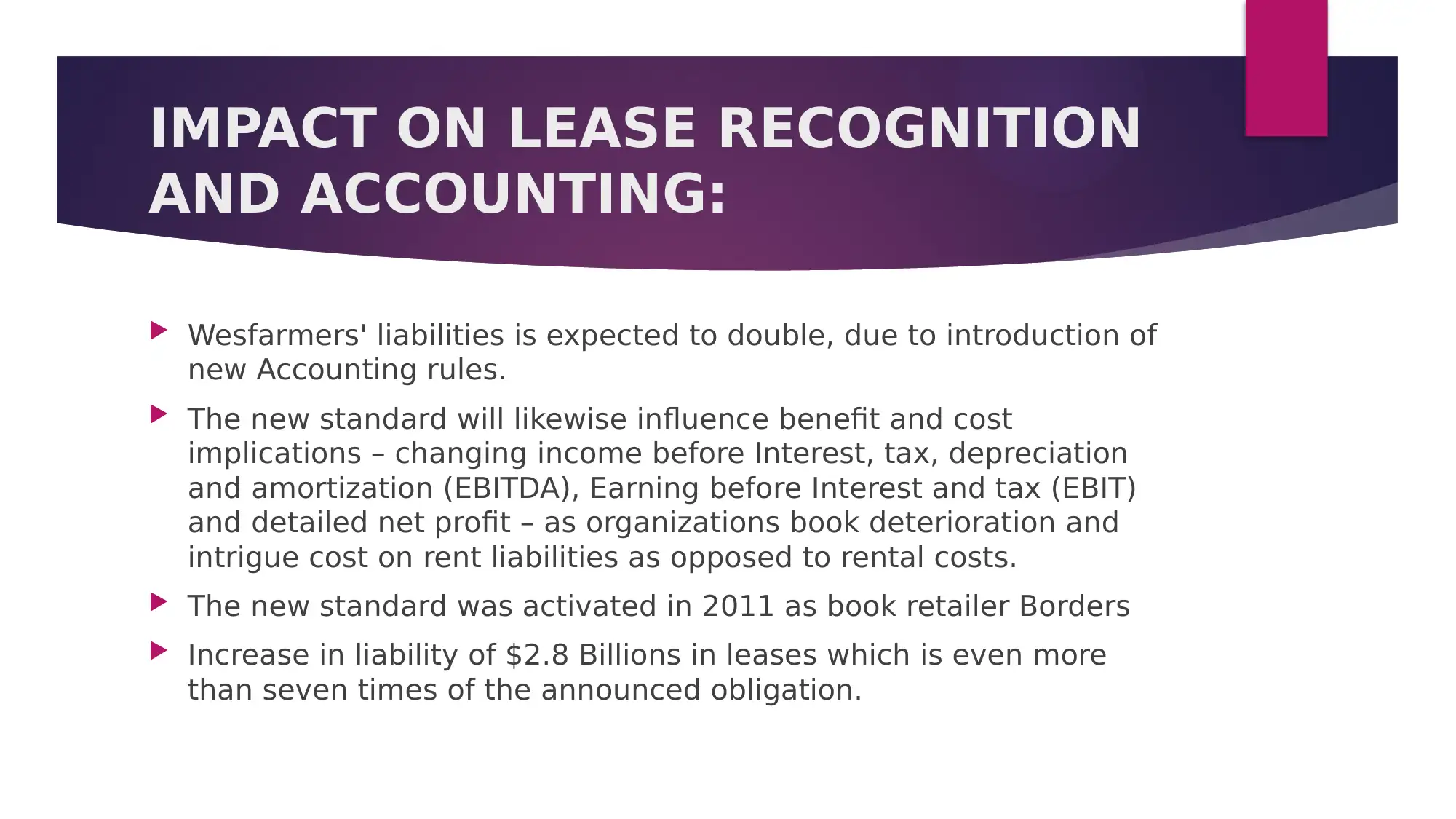
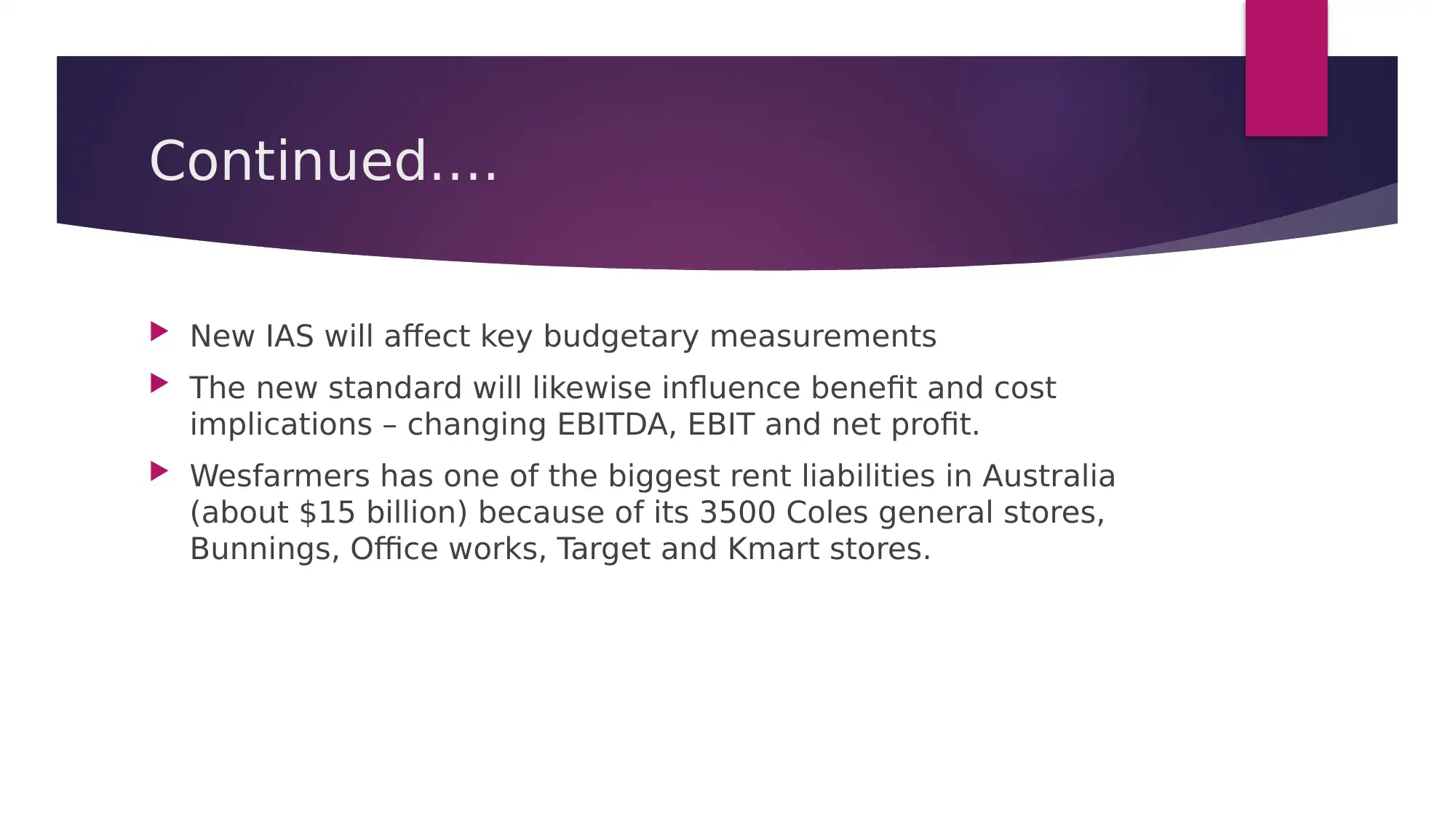





![[object Object]](/_next/static/media/star-bottom.7253800d.svg)